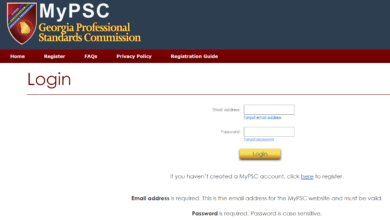The Ultimate Guide to Understanding NetSuite Software Pricing in 2025

Choosing the right enterprise resource planning (ERP) system can feel overwhelming, especially with so many options available. In today’s fast-paced business world, finding a solution that helps you streamline operations and scale effectively is key. That’s where NetSuite comes in—a trusted cloud-based ERP platform for businesses of all sizes.
But let’s be honest: one of the biggest questions businesses ask is, “How much is this really going to cost?” Understanding the true price of NetSuite isn’t just about numbers—it’s about knowing what you’re paying for and how it fits your goals.
- Subscription-based pricing
- User licenses by access level
- Add-on modules available
- Implementation fees vary widely
- Customization may increase costs
In this article, we’ll walk you through everything you need to know about NetSuite software pricing so you can make a decision with confidence.
An Overview of NetSuite’s Pricing Structure
NetSuite’s pricing model is flexible and modular, giving businesses the freedom to pay only for the features they need. Unlike older software that charges a large upfront fee, NetSuite uses a subscription approach that bundles together platform fees, user licenses, add-on modules, and setup costs.
1. Base Platform Fee
The basic subscription fee for NetSuite typically starts around $999 per month, depending on which edition you choose and which features are included. This fee unlocks essential ERP functions like accounting, order processing, and procurement.
2. User Licenses
NetSuite’s user licenses are priced based on how much access each employee needs:
- Full User License: Costs between $99 and $149 per user per month for full ERP and CRM access.
- Employee Self-Service License: A more affordable option for employees who only need limited access for tasks like submitting expenses or time sheets.
Mixing license types can be a smart way to save money while still covering everyone’s needs.
3. Add-On Modules and Advanced Features
One of NetSuite’s strengths is its ability to grow with you. You can add modules for Advanced Financials, Inventory Management, CRM, and SuiteCommerce for eCommerce. Each module has its own cost, so the more you customize, the higher your monthly subscription.
For example, a business launching an online store with SuiteCommerce Advanced should expect additional fees for eCommerce tools and integrations, depending on their needs.
Editions Tailored for Every Business Size
NetSuite offers editions that match businesses at different stages of growth:
- Limited (Starter) Edition: Great for small businesses with fewer than 10 users.
- Mid-Market Edition: Designed for growing companies with multiple subsidiaries and currencies.
- Enterprise Edition: Built for large companies with global operations and complex reporting.
Each edition includes the core platform but differs in scalability and advanced features.
Implementation Costs: A Significant Factor
Software pricing is only part of the equation—implementation can be one of the largest expenses. Depending on how complex your operations are, implementation costs range from $25,000 to over $100,000.
Here’s what implementation usually includes:
- System configuration
- Data migration
- Custom workflows
- User training
- Testing and go-live support
If your business requires a lot of customization, expect additional fees for custom development, typically charged at $150 to $250 per hour.
Training, Support, and Ongoing Maintenance
NetSuite’s standard subscription comes with basic support, but many companies invest in premium support plans or extra training to help their teams get the most from the platform. While this adds to the cost, it can pay off in better adoption and smoother operations.
Hidden Costs and Important Considerations
It’s important to factor in extra expenses beyond the standard subscription. Watch out for potential hidden costs like:
- Annual price increases
- Integration costs with other platforms
- Industry-specific compliance modules
- Ongoing maintenance of customizations
Being aware of these can help you avoid surprises and stay within budget.
Where to Find Up-to-Date Pricing Insights
Because pricing can vary depending on your industry, company size, and specific needs, it’s smart to consult with experts or partners who specialize in NetSuite implementations. A great place to start is the in-depth guide from Techfino, which covers the latest pricing trends, licensing tips, and ways to save.
Is NetSuite Worth the Investment?
Yes, NetSuite may come with a hefty price tag upfront—but its long-term benefits, like real-time reporting, automation, and scalability, make it a solid investment for many companies. If you’re growing quickly or juggling multiple systems, NetSuite can bring everything together under one platform.
That said, it’s not the perfect fit for everyone. Take a close look at your budget, technical resources, and growth plans before you commit.
Key Takeaways and Actionable Advice for Evaluating NetSuite Software Pricing
Understanding NetSuite software pricing helps you plan better and avoid costly surprises. By breaking down base fees, licenses, modules, implementation, and hidden costs, you’ll get a clearer picture of what to expect.
To make the most of your investment, partner with a trusted NetSuite consultant who can tailor the system to your business and help you negotiate pricing. Resources like Techfino’s pricing guide can also give you an edge.
- Review platform fees upfront
- Match license types to user needs
- Choose only essential modules
- Budget for implementation costs
- Plan for future customizations
With a transparent approach and a solid grasp of NetSuite software pricing, you’ll be ready to make an informed choice and set your business up for long-term success.




